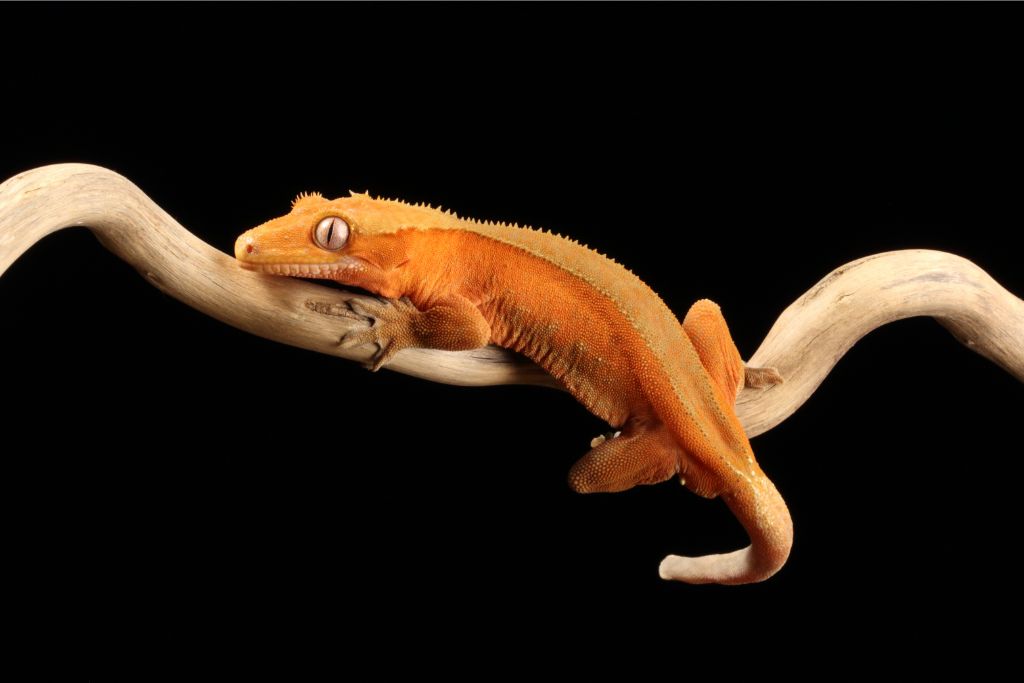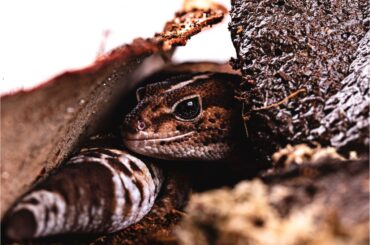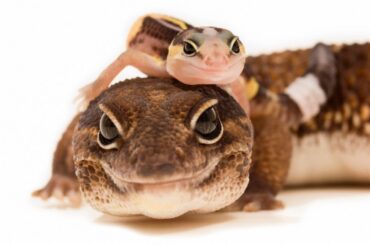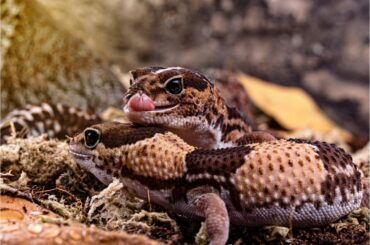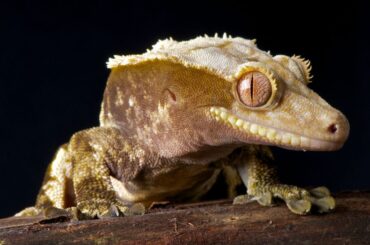Do you want to know how long crested geckos live in captivity and in the wild? Are you curious about what factors to consider to let geckos live longer than expected? Would you like to determine how to prolong their lives through proper care?
Crested geckos were once considered an extinct reptile but were rediscovered in 1994 in New Caledonia. Since they are gentle and need simple care, they have become famous worldwide as pets.
This small reptile is also known as an eyelash gecko due to its fringed eyelids. Crested geckos make fantastic pets, and they are perfect for beginners since they don’t need elaborate setups.
The crested gecko’s lifespan is like all living creatures, for they have limited time on this planet. Understanding their lifespan is essential for knowing the best care you can offer them. A crested gecko’s longevity depends on how happy and healthy they are under your care.
Lifespan In Captivity
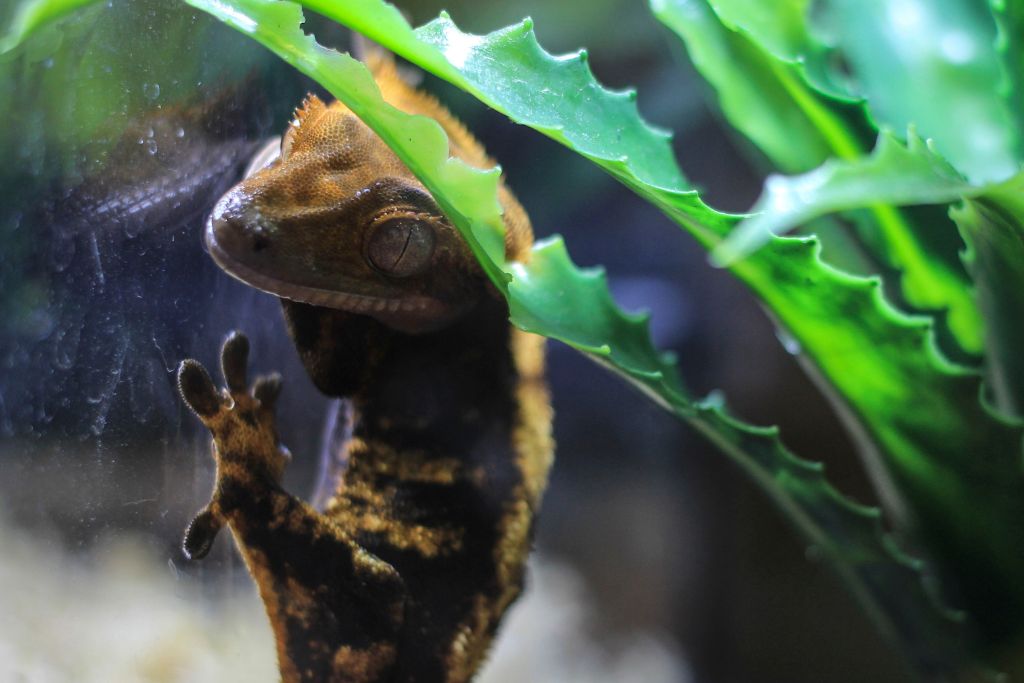
The gecko’s lifespan in captivity is impressive, typically 15 to 25 years. Interestingly, male geckos are known to have a slightly longer lifespan, reaching 25 years, compared to females. Yet, several factors may also influence crested gecko lifespans in captivity.
When geckos inherit specific genes that are more resilient and less prone to diseases, they tend to live longer than others. Other factors affecting a gecko’s lifespan include proper husbandry practices and regular veterinary visits.
Factors Affecting Lifespan In Captivity
Captivity can significantly impact the lifespan of various species. Understanding the factors behind it is essential for conserving the lives of animals under its owner’s care. Here are the key factors affecting lifespan in captivity:
Genetics
Genetics can affect how likely your gecko is to get different illnesses and health problems. A gecko with an excellent genetic status and a more robust immune system is more likely to live longer. Favorable genetic traits can also lead to geckos reaching maturity and maintaining good health.
The oldest known crested gecko lives for 29 years for males and 40 years for females, and a reptile keeper in Germany achieved it. This proved that its lifespan could be extended when strong genetics were incorporated into the small reptile.
Gender
Gender can have a significant effect on the crested gecko’s lifespan. Typically, females live shorter than males since they spend their time reproducing. Female gecko’s reproduction efforts significantly affect their health and longevity.
On the other hand, male geckos who do not put in the effort of carrying out the reproduction process can save up their energy for other life aspects. With this, they may tend to live longer than their female counterparts.
Environment And Tank Setup
Providing a suitable habitat or terrarium for your reptile gecko is essential for their well-being. Ensuring the right temperature, lights, and hiding places inside your gecko’s tank is crucial for their health.
Allowing them to feel like they are in their natural habitat promotes their physical and mental well-being. A well-kept tank with the right temperature and adequate light and UVB exposure is essential for their metabolism. Always ensure your reptile has enough hiding places to keep them from getting stressed and hurt.
Illnesses And Care
To prevent illnesses from occurring, regular check-ups and proper nutrition must be secured. Regular veterinary visits are a must to detect and address health issues early on. Meanwhile, a balanced diet rich in calcium and vitamin D3 prevents metabolic bone diseases.
Proper care and tank maintenance can also go a long way in promoting the well-being of crested geckos. Increasing lifespan depends on how well you care for the gecko’s environment.
Lifespan In The Wild
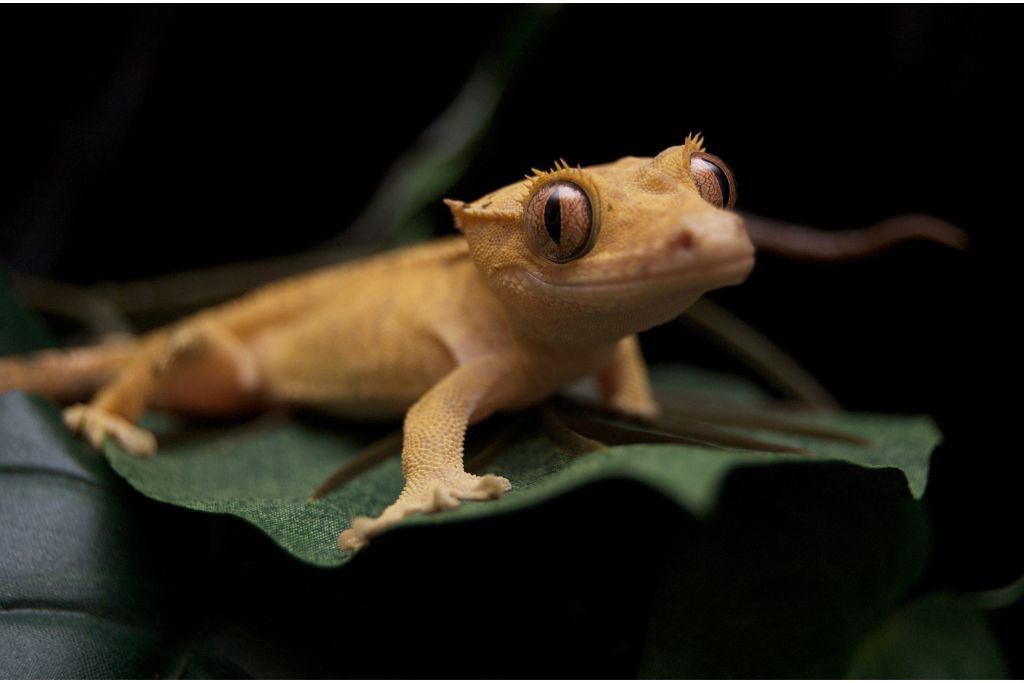
Lifespan in the wild is technically shorter than crested gecko lifespan in captivity. Gecko’s lifespan in their natural habitat only ranges from 5 to 15 years. This is due to several factors, such as potential animal enemies, weather conditions, and limited food resources.
In contrast, geckos living in captivity tend to live longer due to temperature control and stability. They are protected from predators and have access to food and veterinary care.
Did you know that the natural habitat of crested geckos resembles the forest of New Caledonia in the Southwest Pacific? It is described as having temperature changes that are humid during the day and cold at night.
Factors Affecting Lifespan In The Wild
A gecko’s natural habitat tends to be less secure due to predation and environmental instability. Determining the following factors affecting lifespan in the wild is essential to survival in a gecko’s natural home.
Predation And Injuries
Due to their size, small gecko species often have a higher risk of animal attacks and injuries. They are more vulnerable to predators such as birds or prey, mammals, and giant insects, making them the primary target for food.
Compared to giant animals, the gecko’s ability to carry physical trauma is limited, resulting in a shortened lifespan. In the wild, access to health care is impossible, allowing these creatures to rely solely on their ability to heal themselves.
Parasites And Genetic Defects
Factors like parasites and genetic defects contribute to the lifespan of geckos in the wild. Lifespan will deteriorate if parasitic infection and physical issues are not treated.
Survival in the wild is contingent. This is why unusual defects in your gecko are challenging and may reduce their chances of reaching old age.
Tips For Increasing Lifespan
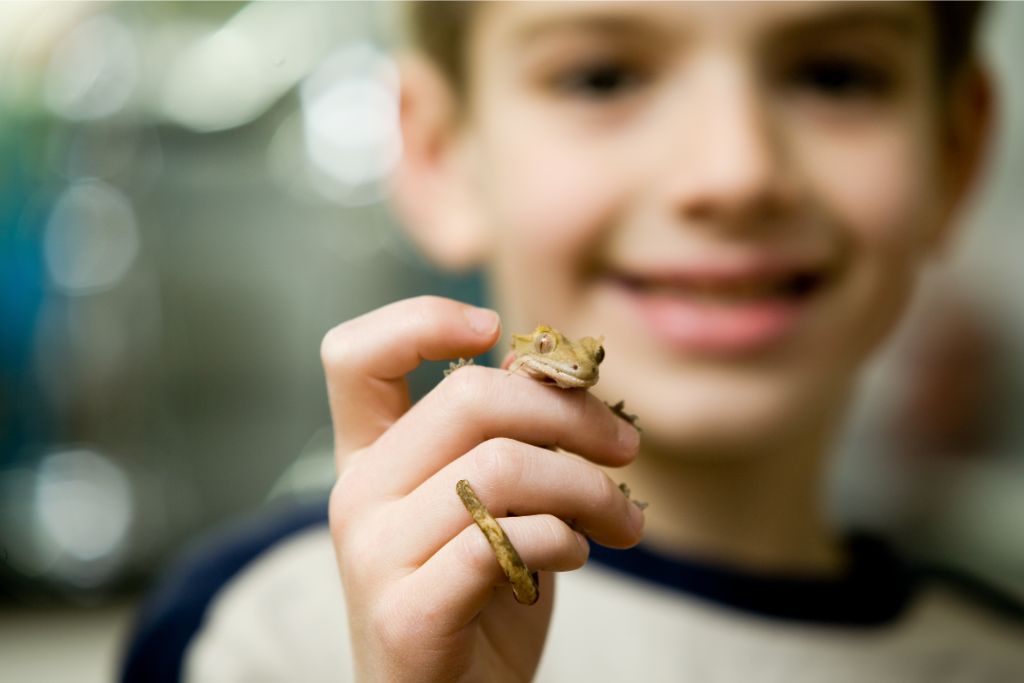
There are numerous ways to increase a crested gecko’s lifespan in captivity. It involves the owner’s commitment and consistency to provide the best care for their loving reptile pets. Listed below are some tips for increasing the lifespan of crested geckos.
- Provide a Proper Habitat: Ensure an enclosure that resembles the gecko’s natural habitat. Maintaining the correct temperature, humidity, and lighting is the key to environmental comfort.
- Balanced Diet: Provide your gecko with the right amount of vitamins and minerals and a balanced diet. They can eat commercial food with live insects, like crickets, for added nutrition.
- Regular Cleaning: Prevent bacteria from building up by keeping your gecko’s tank clean. Remove waste and uneaten food from their enclosures to keep them clutter and dirt-free.
- Hydration: Keep a small water dish in the enclosure for easy water access. Always consider misting the enclosure to create the humid environment needed for shedding.
- Handling with Care: Cut unnecessary handling to avoid stress since geckos are sensitive species. Handle them with care if needed, and do so infrequently.
- Vet Check-Ups: Always have regular check-ups with a reptile veterinarian to check the gecko’s overall health.
- Enrichment: Design an enclosure with enough hiding spots to boost mental stimulation. You can also add some plants and branches to encourage natural behavior.
- Avoid Overbreeding: Do not overbreed your geckos, and be responsible as you do so to ensure their long-term health.
- Quarantine New Additions: Isolate new gecko members to avoid spreading potential diseases.
- Research and Educate Yourself: Read reputable sources and stay informed about proper care tips. You can also join online forums for further advice and support.
Conclusion
Knowing crested gecko information and lifespan is vital for responsible pet ownership. A long and healthy life for crested geckos needs the owner’s commitment to providing the best care possible.
Ensure a healthy gecko by offering suitable enclosures, a balanced diet, and good handling practices. When you keep your reptile pets happy, you’ll enjoy their companionship, which fosters a mutually rewarding experience.
FAQs
How Long Do Crested Geckos Live As Pets?
Crested geckos can live up to 15 to 25 years when taken care of as pets.
How Long Can A Crested Gecko Live In Captivity?
These reptiles can live up to 20 years or more with proper care in captivity.
Are Crested Geckos Friendly?
Crested geckos are sensitive creatures, yet they become friendly with gentle handling.
Do Crested Geckos Need UVB?
Crested geckos can benefit from UVB but can also thrive and live even without it.
Do Crested Geckos Eat Every Day?
No, crested geckos do not eat every day. Feeding your geckos every other day or a few times a week is advised.

